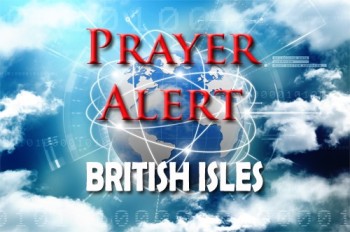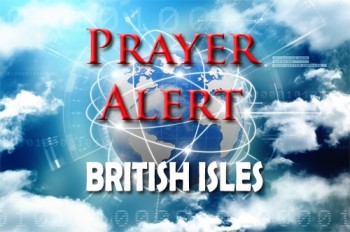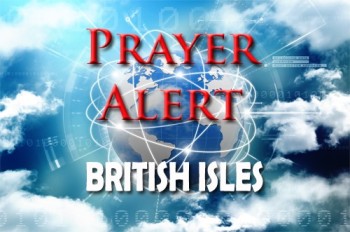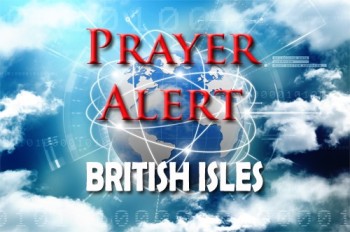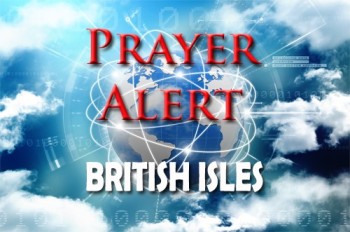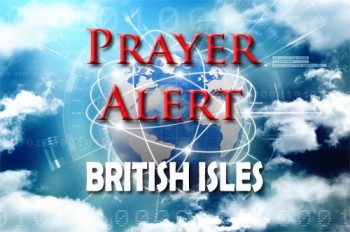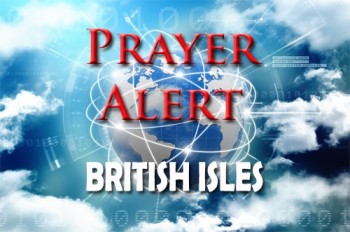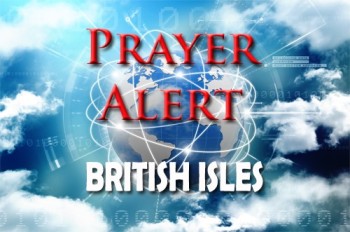Displaying items by tag: British Isles
Northern Ireland: 'care for my husband or my sister’
Miriam, who is 77 and recovering from cancer, had her life torn apart when she had to choose to care at home for her 89-year-old husband Ian, while her sister Jennifer (73, with young onset dementia) was placed in assisted living accommodation. Ian was diagnosed with vascular dementia in 2020. Over 220,000 people are unpaid carers for a sick or disabled person in Northern Ireland. That’s one in eight people. Caring for people at home reduces pressure on the health and social care system, and it reduces the number of people in residential care and hospitals. Miriam said she had to ‘let one go’ to look after the other: ‘It is just exhausting.’ The Praxis charity has appointed the first dementia coordinator, who will focus entirely on carers. The last carers strategy was published two decades ago. Northern Ireland lags behind the rest of the UK in supporting people battling the dementia journey alone.
Adam Peaty shares newfound faith
Britain’s superstar breaststroke swimmer Adam Peaty has revealed that a newfound faith in God helped him overcome alcohol misuse. He has started going to church every Sunday and said, ‘It’s about being a better person. Not only a better athlete and fulfilling my gift, but also being a better dad for George. There are so many other reasons. It gets quite deep. But it’s great to be a part of.’ After surgery for a foot injury and then struggling with his mental health, he reached out to the Olympic chaplain Ashley Null.
Home Office asylum contractors price out homeless
The Home Office (HO) is leaving British people homeless by outbidding local councils for accommodation. HO contractors are bidding for accommodation for asylum seekers, while the number of British people having to stay in temporary accommodation is near record levels. Asked on three separate occasions why its contractor paid more than councils can afford, the HO refused to comment. The problem is most acute in London, where 166,000 people are in temporary lodgings - more than the population of Oxford. There was no suggestion that the HO or asylum-seekers created the problem, but it is contributing to homelessness. The councils are spending £52m a month on temporary accommodation and will not outbid each other, because they want to protect taxpayers. There needs to be the same partnership with the HO. Pray for housebuilders to invest in building more affordable housing.
Can Prince William navigate politics to cut homelessness?
Prince William's Homewards project is a campaign for affordable housing as families face rising mortgage and rent costs, but there are some big challenges to face. He has been personally engaged in homelessness for many years as an active patron of the charities Centrepoint and The Passage. He now wants to turn words into action, with a more interventionist plan to create extra housing and measurably cut homelessness over the next five years. But this means getting involved in areas normally reserved for elected politicians, and he may face questions about getting involved in political issues. Any involvement in addressing a shortage of affordable housing is inescapably political, not least when there is so much anxiety about rising rents and mortgage costs. But being accused of being a bit too political might not actually be a bad thing, according to royal author Prof Pauline Maclaran, particularly for a younger generation.
Scotland: MSPs back Salvation Army campaign
After continued work by the Salvation Army, a campaign to reduce the stigma around deaths caused by alcohol and drugs has gained the support of MSPs in Scotland. ‘See Beyond - See the Lives - Scotland’ hopes to use testimonies of people affected by deaths caused by addiction to shatter myths about substance abuse, and encourage more compassion. At a Holyrood reception MSPs Miles Briggs and Monica Lennon shared their experiences of losing their fathers to alcohol addiction. Their letters are included with fourteen others who have written to their loved ones on the campaign's website. In her letter, Monica, who attended Alcoholics Anonymous meetings with her father in Glasgow as a teenager, writes: ‘A whole lot of life happens when you are waiting for rock bottom. Part of me always believed that you would fall so hard that recovery would follow. There were times it was too difficult to be around.’
Parents spend hundreds on school uniforms
The Children's Society reports that parents spend on average £422 a year on secondary and £287 on primary uniforms, despite government rules meant to lower the costs. Schools requiring parents to buy costlier branded items were partly to blame. One mum said, ‘Constantly replacing damaged clothing makes it even more expensive’. Under changes to the Education Act last year, schools should be helping cut costs by promoting cheaper second-hand uniform options or removing unnecessary branded items from uniform lists. But pupils still must have an average of three branded uniform items. Almost 1/3rd of secondary school pupils must own four to five branded items, and 45% of parents said school uniform policies had still not been updated. Pray for more clothing banks like Reloved who provide pre-worn uniforms free to families struggling with costs. In 11 months it has supported 3,000 families, and demand is rising as the cost of living soars.
Lithium mine to open for electric carmakers
A French-UK joint mining venture in the St Austell area of Cornwall has been announced. The project will provide battery-grade lithium carbonate, a key component in electric cars. It will create more than 300 jobs, and the site has reserves lasting for around 30 years. The venture aims to operate the UK's leading lithium hub within five years; its target is to supply 500,000 electric cars per year with the component by the end of the decade. This would meet roughly two-thirds of Britain's estimated battery demand. A spokesperson said drilling and exploration have been carried out since 2017, and a process and pilot plant has been developed. The project has received financial support from Innovate UK and the Automotive Transformation Fund, a programme to support the electrification of vehicles and their supply chains in the UK.
Improve patient safety in mental health care
The secretary of state has announced that in October a new Health Services Safety Investigations Body will be formally established to commence a national investigation into mental health inpatient care settings. It will investigate a range of issues, including how young people with mental health needs can be better cared for, how providers can learn from tragic deaths that take place in their care, how out-of-area placements are handled, and how staffing models can be improved. The recommendations from this far-reaching investigation will help service providers to improve safety standards in mental health facilities across the country. Also a further £2.3 billion is being invested into the expansion and transformation of mental health services in England, so that two million more people can access crucial NHS-funded mental health support. Pray for this to ensure that mental health care facilities meet the highest safety standards. Pray for patients to be able to say they have faith in the care they receive.
Loan sharks profit from soaring prices
Loan sharks say business has never been so good, but there are huge risks attached to this type of borrowing. One loan shark calls himself an ‘enforcer’- referring to what happens if payments are missed. ‘The car is damaged, house windows and doors are pulled out, and even people get badly beaten.’ He says beatings are rare but admits to breaking legs, smashing teeth or eye sockets, leaving people hospitalised. Nearly all his customers are regulars, paying off debts within two or three months - then they are back a few weeks later. With high inflation demand has soared. He now hears from single mums and families needing smaller amounts of £500 to £1,000 to pay for gas or electricity or for groceries. Interest rates up to 50%, or ‘double bubble’ terms, where the original loan is doubled each month, are often applied. Most clients would accept any terms, out of desperation. Borrowers are usually lower-waged, full-time workers.
Birmingham: giant prayer wall
Christians of all denominations gathered on the outskirts of Birmingham to bless the land on which a giant prayer monument will be built. The construction of the 169-feet tall Eternal Wall of Answered Prayer will begin soon and when completed will be the largest Christian monument in the world. It will be in the form of an endless loop, containing the text of the prayers of millions of people around the world which have been answered. About 300 people attended the consecration of the land. The monument’s founder, Richard Gamble, said, ‘The blessing of the land ensures that it is built on a sacred foundation of prayer and gratitude. This iconic monument, dedicated to the power of prayer, showcases an endless global database of stories that Jesus answered, making hope visible to future generations.’
